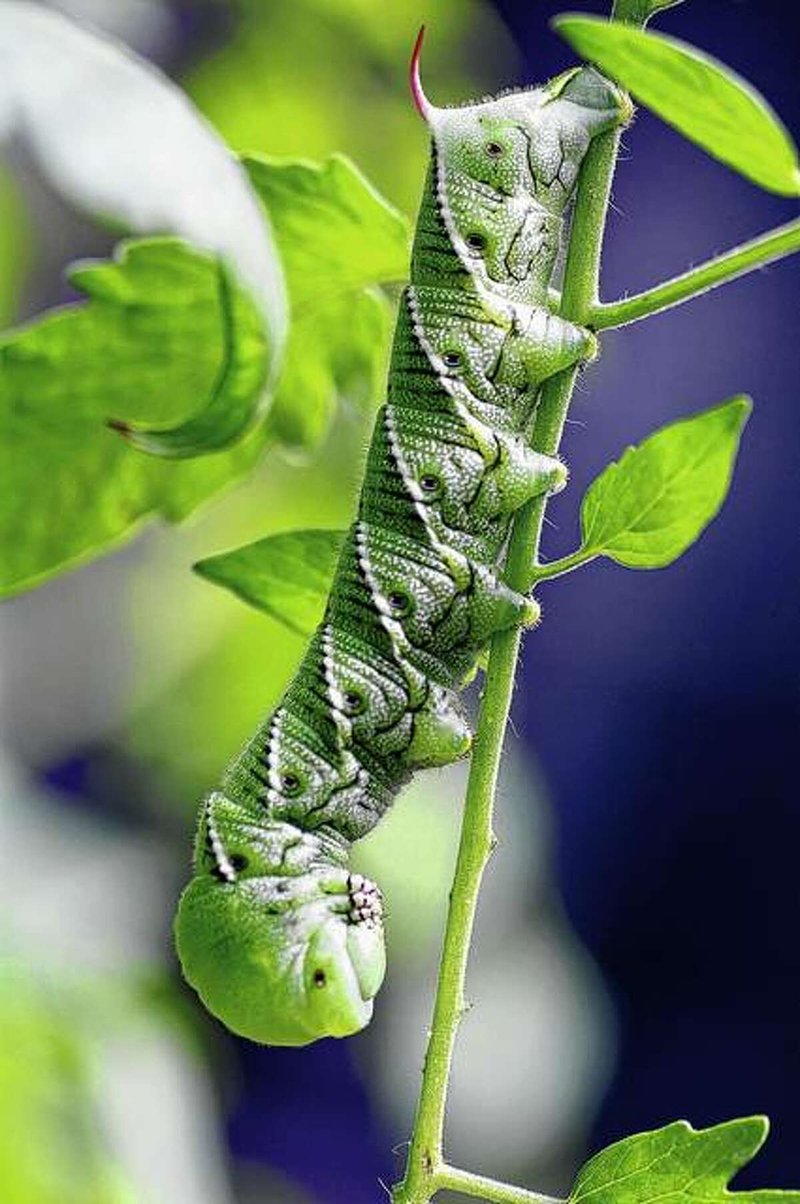
These predators are like the garden’s secret army, working quietly to maintain balance. They’re not just beneficial for your plants; they can also help create a more vibrant and thriving ecosystem. Let’s dig into the world of hornworm predators and explore how you can invite them to your garden without a cape—but with plenty of plant-loving power.
What Are Hornworms?
Before we jump into the natural defenders, it helps to know exactly what hornworms are. These pesky caterpillars are the larvae of **sphinx moths**, and they’re notorious for their insatiable appetite. Hornworms can grow quite large, reaching up to 4 inches in length, and they’re usually a bright green color, which makes them blend in easily with the foliage.
You might find them primarily munching on **tomatoes**, **peppers**, and **eggplants**, making them a gardener’s nightmare. If you’ve ever been in the middle of harvesting your vegetable garden, only to discover that your plants are being feasted upon, you know the heartbreak that hornworms can cause. They can quickly strip a plant of its leaves, leading to stunted growth or even death.
But don’t stress! Nature provides some fantastic allies that will help keep these hungry invaders in check.
1. The Mighty Parasitic Wasps
One of the most effective natural predators of hornworms is the **parasitic wasp**. Among the most popular species is the **Cotesia congregata**. These tiny wasps don’t harm your plants; instead, they target hornworms as a breeding ground.
When a female wasp finds a hornworm, she lays her eggs inside the caterpillar. Once the eggs hatch, the larvae feed on the hornworm from the inside out. While it sounds gruesome, it’s a natural way to help control hornworm populations.
You might be wondering if these wasps are a problem for your garden. Here’s the thing: they’re harmless to humans and pets, and they actually help keep your plants healthier. By encouraging these beneficial wasps, you can reduce the need for chemical pesticides.
2. The Fearsome Lacewing Larvae
Another fierce competitor for hornworms are **lacewing larvae**. These little creatures might look harmless, but they’re often called “aphid lions” for a reason—they’ll chow down on all sorts of pests, including hornworms.
Lacewing larvae are voracious predators, and they’re known for their incredible appetite. They’ll actively hunt for hornworms and other garden pests, making them a valuable ally in your garden.
To attract lacewings, you can plant flowers like **yarrow**, **dill**, or **fennel**. These plants provide a habitat for lacewing adults, which in turn will lay eggs in your garden. Once the larvae hatch, you’ll have a new batch of hungry predators ready to take on the pesky hornworms.
3. Birds: Nature’s Feathered Friends
Let’s not forget about our feathered friends! Many **bird species** love snacking on hornworms, especially when they’re in their larval stage and easier to spot on your plants. Chickadees, sparrows, and blue jays can be particularly helpful in keeping your garden pest-free.
Attracting birds to your garden can be as simple as providing food, water, and shelter. Hanging bird feeders stocked with seeds and putting up a birdbath can turn your garden into a bird haven.
You might find that birds are not only helpful in controlling hornworms but also beautiful to watch. Just imagine enjoying your morning coffee while chirping birds flutter about, all while doing their part in keeping your plants healthy.
4. Ground Beetles: Underrated Garden Warriors
You might not think much of beetles, but **ground beetles** are like the ninjas of the garden. These insects hide in the soil and are excellent hunters, always on the lookout for pests like hornworms. They’ll ambush these caterpillars and help keep their numbers down.
Ground beetles thrive in healthy soil, so ensuring your garden is well-maintained can encourage their presence. Planting **cover crops** and maintaining some leaf litter can provide a perfect environment for these beneficial beetles.
Here’s a quick tip: when you’re doing some garden cleanup, try to disturb the soil minimally. This way, you’ll give those ground beetles a chance to thrive instead of sending them running off.
5. Beneficial Nematodes: The Tiny Powerhouses
If you’re looking for a unique and effective way to combat hornworms, consider using **beneficial nematodes**. These microscopic worms can be a game-changer. They invade the bodies of hornworms and other pests, eventually killing them off.
You can easily introduce nematodes to your garden. They often come in a package that you mix with water and apply to the soil. Once they’re in the ground, they’ll start hunting down hornworms and other pests without harming your plants.
This method is especially appealing for organic gardeners. Nematodes are environmentally friendly and can help promote a balanced ecosystem in your garden.
Creating a Garden-Friendly Environment
Now that you know about these natural predators, you might be wondering how to create an environment that attracts them. Here are some simple steps you can take:
- Plant Diversity: Grow a variety of flowers, herbs, and plants. This attracts beneficial insects and birds.
- Avoid Pesticides: Chemicals can harm both pests and beneficial predators. Try to use organic methods whenever possible.
- Provide Water Sources: A small birdbath or shallow dish of water can attract birds and beneficial insects.
- Mulching: Adding organic mulch can create a friendly habitat for ground beetles and other beneficial insects.
Creating a welcoming garden environment not only helps control hornworm populations but also fosters a diverse and healthy ecosystem.
In a world where hornworms can wreak havoc on your plants, understanding and utilizing their natural predators is a smart choice. From **parasitic wasps** to **ground beetles** and **beneficial nematodes**, these allies are crucial for maintaining a thriving garden. By creating an environment that encourages these predators, you not only help combat pest problems but also enrich the biodiversity of your outdoor space.
So next time you spot a hornworm, remember—you’ve got an army of helpers ready to swoop in. With a little care and strategic planting, you can enjoy a healthy and productive garden without the worry of chemical pesticides. Happy gardening!

